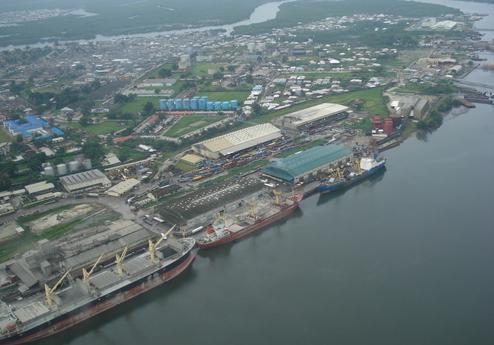
The Nigerian Maritime Administration and Safety Agency (NIMASA) has begun to enforce International Ship and Port Facility Security Codes. The Nigerian government will fly black flags above ports that are out of compliance, and Nigerian flags over those that are.
These measure have been initiated to move along the nation-wide effort to secure its ports from pirates. The country was given an ultimatum to up their security efforts by the United Nations Coast Guard.
Many are of the opinion that Nigeria has recently dropped the ball in the area of maritime security and anti-piracy efforts. While international cooperation in other hotspots around the globe is causing a decrease in piracy, Nigeria has been reluctant to welcome international fleets into their waters. As a result, piracy is on the rise in the Gulf of Guinea, the top oil producer in Africa and a vital shipping area for metal and cocoa.
The ultimatum was given to Nigeria after the federal government dissolved the Presidential Implementation Committee on Maritime Safety and Security. Nigerian ships will face harsh sanctions if the country does not get its ports up to standards within 90 days.
The expected sanctions are that the United States will ban all ships that call from Nigerian ports from calling at its own ports. This would be catastrophic to the Nigerian economy and port industry.
Included in the overall beefing up of port security is increased automation. One of the requirements is to reduce the amount of human control over who has port access, which in turn should blunt the effect that corruption has within the port system.
While many are surely hassled by the call for heightend security standards, Director General of NIMASA, Ziakede Akpobolokemi has a positive view of the requirements: “the effective implementation of ISPS Code will have financial implications on port facility operators, which will in the long-run, augur well for the entire maritime industry and Nigerian economy as a whole.”
He continued that “The gains of a nationwide compliance with the ISPS Code are immense. Stakeholders should see the drive as the short-term discomfort that our implementation agenda might cause in the interim. But the risk of non-compliance with ISPS Code is frightening given the threats our nation faces from the growing menace of global terrorism and other maritime crime.”
The International Ship and Port Facility Security Codes were established by the International Marine Organization to protect ships and port facilities from the increased threat of global terrorism, but are also vital to stopping piracy in the Gulf of Guinea.